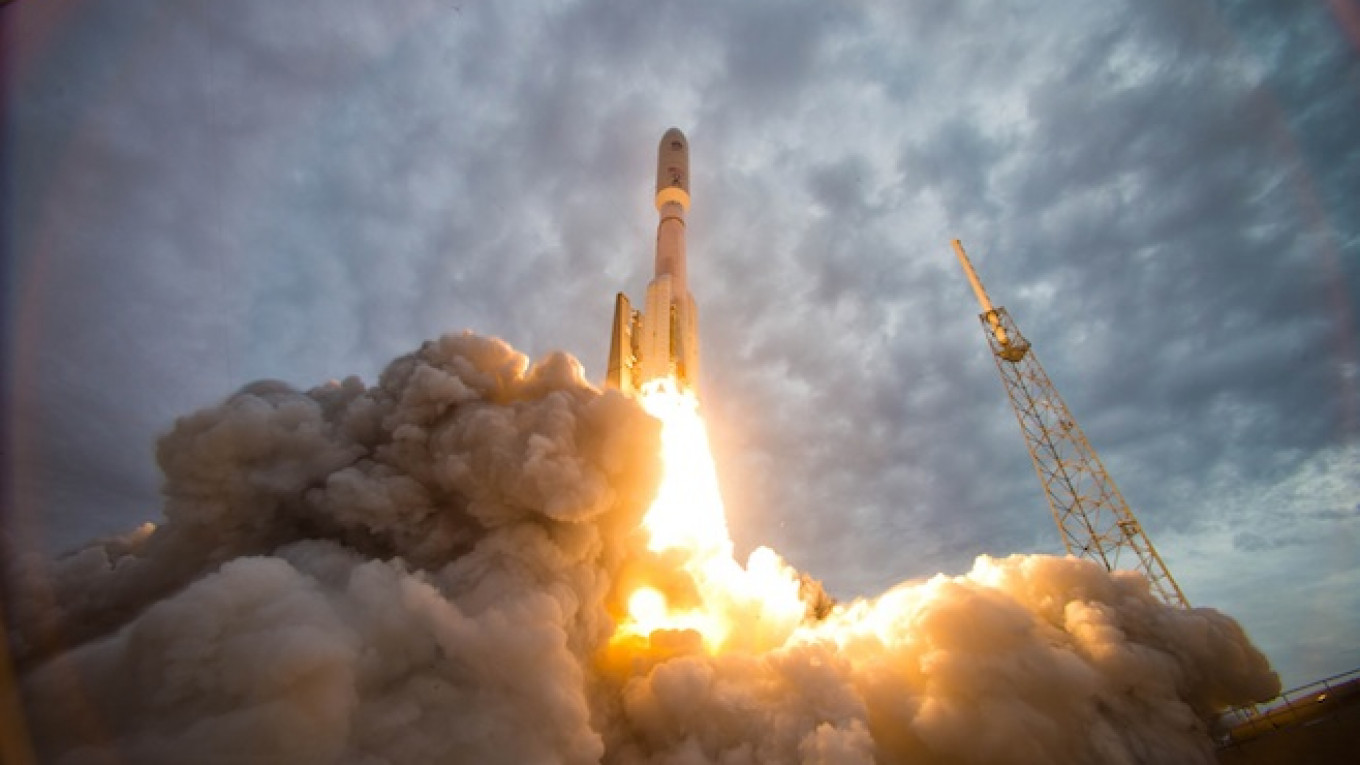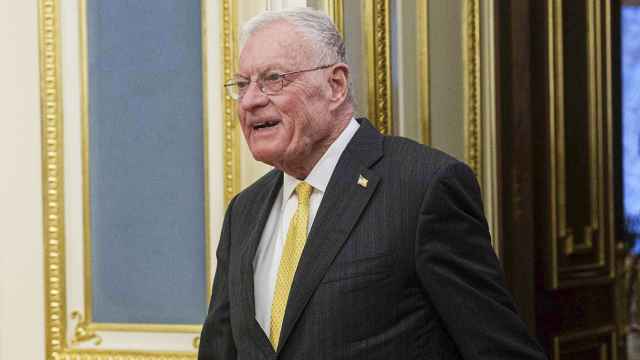WASHINGTON —Two Russian-built rocket engines have arrived in the U.S. aboard a giant Antonov cargo plane despite fears that tensions between the U.S. and Russia could disrupt the supply of engines needed to launch U.S. satellites into space.
"Today, United Launch Alliance received two RD-180 engines at our factory in Decatur, Alabama, that will support critical near-term U.S. missions," Jessica Rye, spokeswoman for the joint venture of Boeing and Lockheed Martin Corp, said Wednesday. ULA uses the Russian engines to help launch a range of NASA and other government satellites into space.
Rye said the deliveries occurred as scheduled, bringing the company's current inventory of RD-180 engines to 15. Three additional rockets are due to arrive this fall, she said.
Tensions between Moscow and Washington over Russia's annexation of the Crimea region of Ukraine have raised concerns that Russian rocket engine deliveries could be interrupted, sparking fresh efforts by United Launch Alliance (ULA) and the U.S. Air Force to explore alternate sources to power the Atlas 5 rocket.
For now, Washington remains dependent on the Russian engines since it could take years and billions of dollars to design and build a U.S.-built alternate engine, according to U.S. government officials and industry executives.
Wednesday's delivery of two more RD-180 engines showed that so far Russian officials are allowing engine deliveries to proceed despite at least one threat tweeted by a senior Russian official that Moscow could halt shipments of engines destined for U.S. military satellite launches.
But Rye said ULA was proceeding with feasibility studies with multiple companies about building a new U.S. rocket engine.
"While the RD-180 has been a remarkable success, we believe now is the right time to invest in a domestic engine," she said, noting that the U.S. government had also made clear its support for development of a domestic engine.
The engines delivered Wednesday were not earmarked specifically for civilian or military launches but will add to the overall current inventory, which officials have said will last for about two years.
ULA has an $11 billion contract with the U.S. Air Force for 36 launches, but privately held Space Exploration Technologies, or SpaceX, has sued in U.S. federal claims courts to be allowed to compete for more of that work.
SpaceX is working through the certification it needs from the U.S. Air Force to compete for such orders with its Falcon 9 rocket, and plans to debut a heavy-lift Falcon rocket next year.
Certifying SpaceX to fly U.S. military missions would help alleviate concerns about a future ban on Russian engine exports.
Former Air Force Space Commander William Shelton, who retired this month, last month said he expected the Air Force to complete its certification of SpaceX rockets by December.
The Air Force is working on a review of possible alternatives to continued use of the RD-180 rocket engines.
See also:
U.S. Court Lifts Ban on Russian Rocket Engine Buys
U.S. Court Issues Injunction Prohibiting Russian Rocket Engine Purchases
A Message from The Moscow Times:
Dear readers,
We are facing unprecedented challenges. Russia's Prosecutor General's Office has designated The Moscow Times as an "undesirable" organization, criminalizing our work and putting our staff at risk of prosecution. This follows our earlier unjust labeling as a "foreign agent."
These actions are direct attempts to silence independent journalism in Russia. The authorities claim our work "discredits the decisions of the Russian leadership." We see things differently: we strive to provide accurate, unbiased reporting on Russia.
We, the journalists of The Moscow Times, refuse to be silenced. But to continue our work, we need your help.
Your support, no matter how small, makes a world of difference. If you can, please support us monthly starting from just $2. It's quick to set up, and every contribution makes a significant impact.
By supporting The Moscow Times, you're defending open, independent journalism in the face of repression. Thank you for standing with us.
Remind me later.






